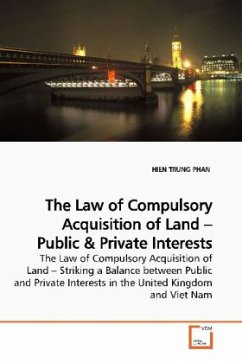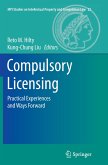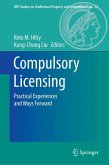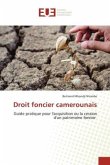In recent years, compulsory acquisition of land (CAL) emerges as a particular challenge to developing economies where commercial development is a significant concern. In Viet Nam, there is a widespread perception that existing policies and laws fail to adequately protect existing ownership rights. An increasing number of complaints in VN take particular issue with the investment purposes for which land is compulsorily acquired and the international rules and conventions that must be adhered to in the case of foreign investors. Meanwhile, in a developed country like the United Kingdom, the law has undergone a fundamental change of direction which makes CAL a more positive factor in planning strategy. Based on the nature of the compulsory acquisition process, where individual properties are required for public purposes, the law is analysed throughout this book in terms of looking for a balance between public and private interests . It suggests ways that CAL procedures in developing countries could be become more open, fair and impartial, and how procedures in developed countries could consider alternative compensation methods.








